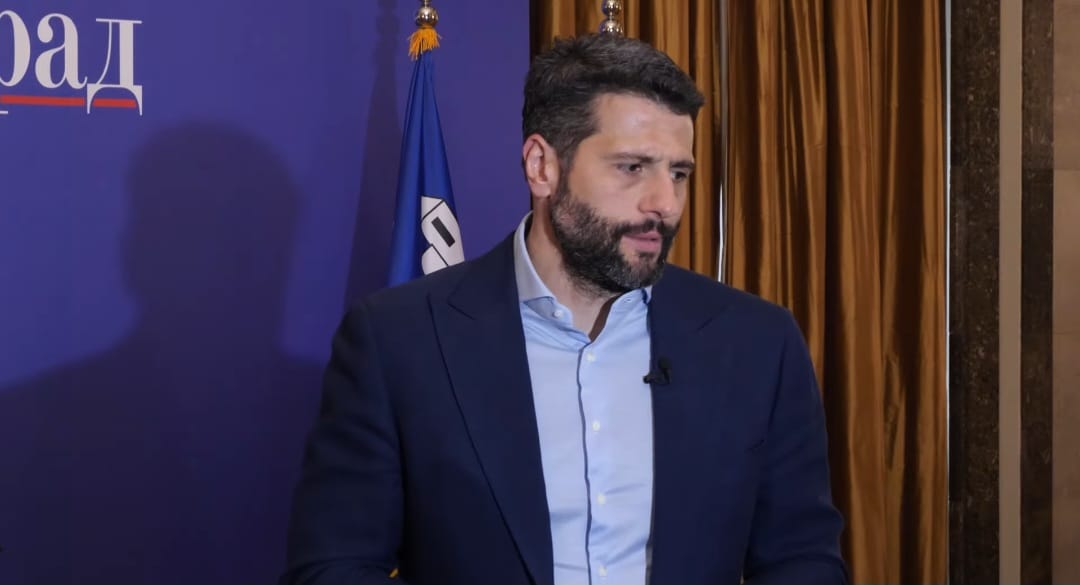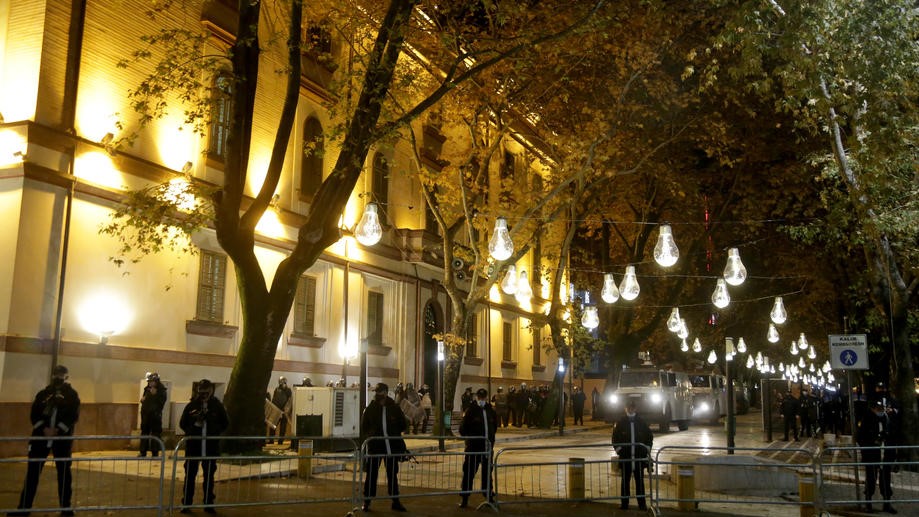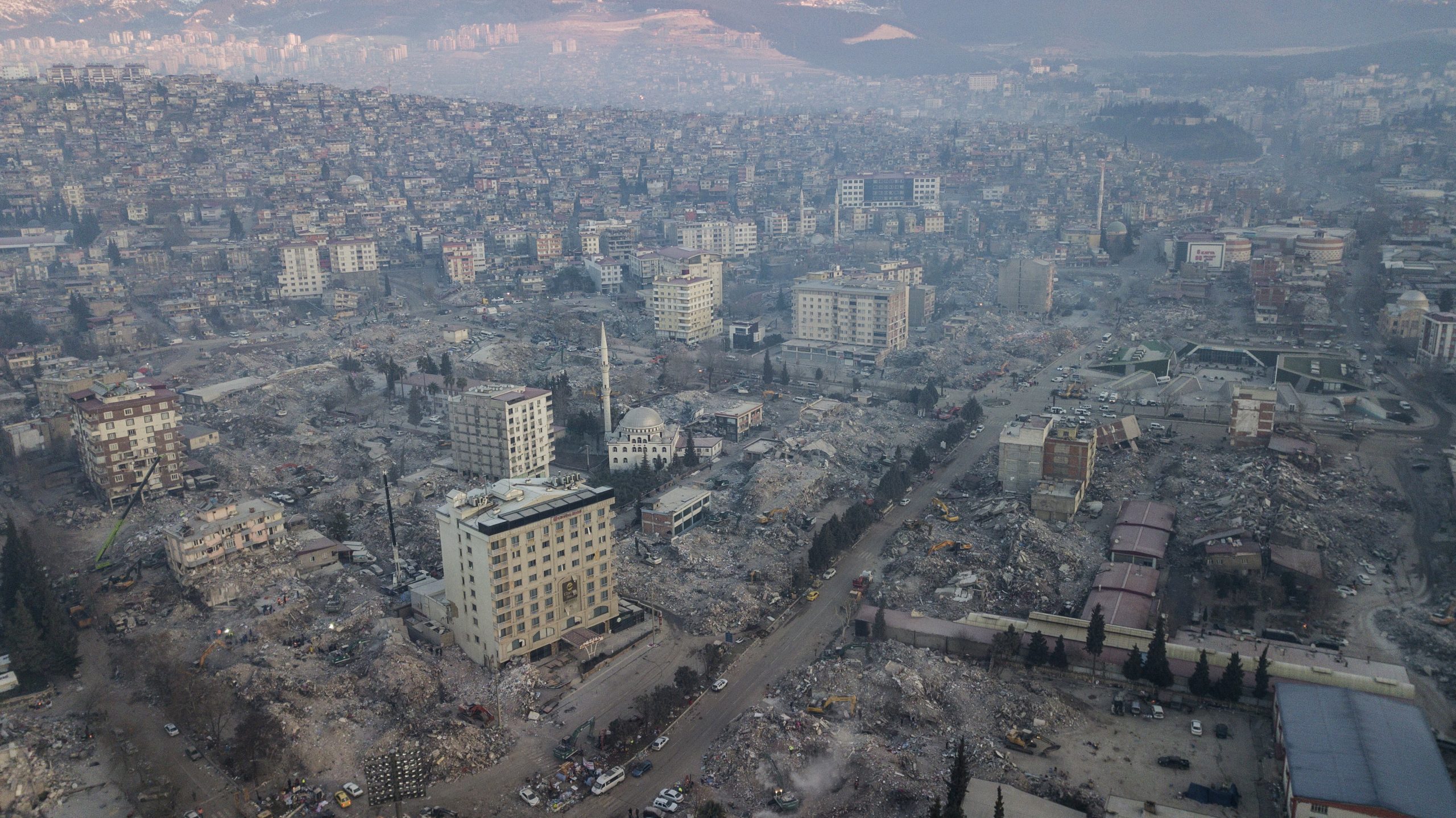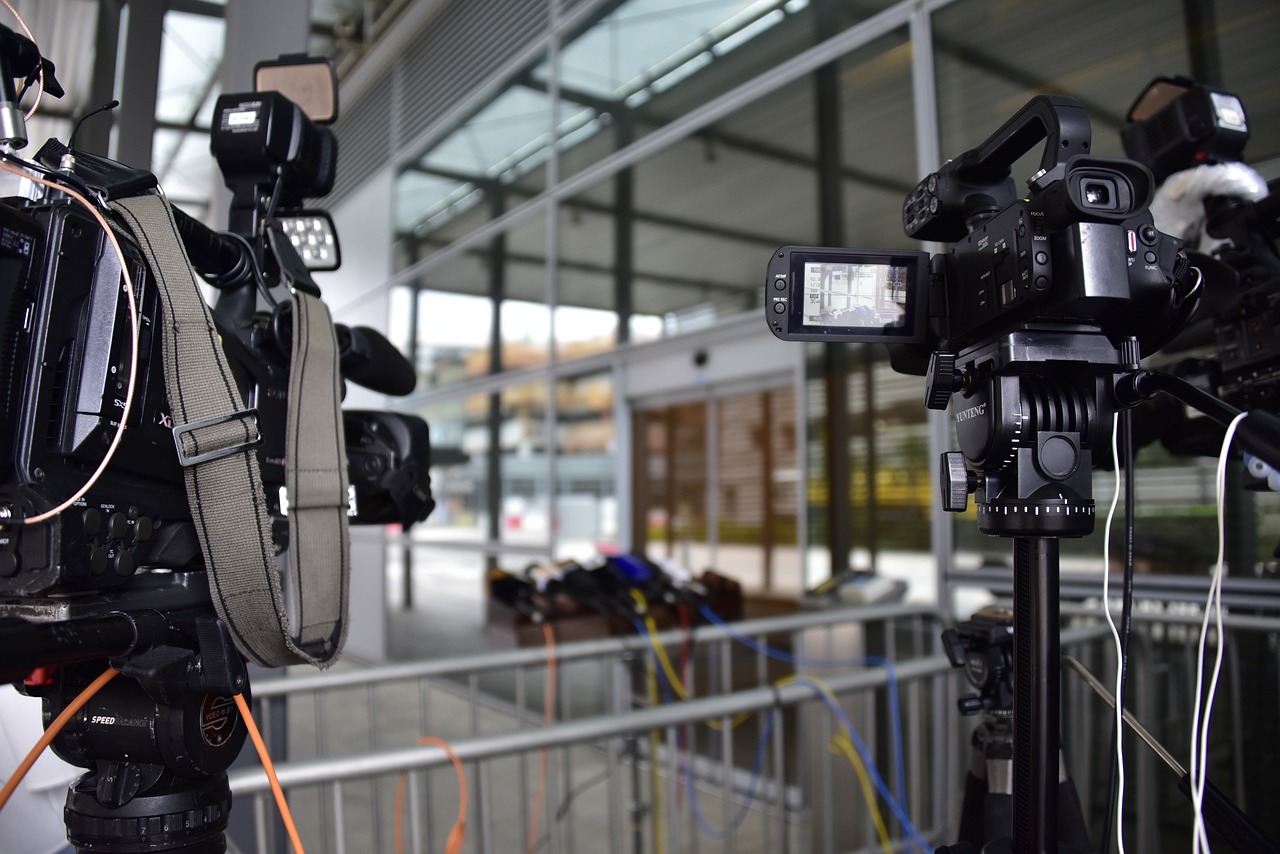The Western Balkans has faced ongoing political tensions and “culture wars” that have migrated from the physical world to the digital space, leading to human rights violations in digital environments.
BIRN’s latest annual report, “Distorting the Truth: Hate Speech and Disinformation Fuel Digital Rights Abuses in the Balkans,” covers digital rights in eight countries of the region, Bosnia and Herzegovina, Croatia, Kosovo, Montenegro, North Macedonia, Romania, Serbia, plus Hungary.
From September 1, 2021, to August 31, 2022, BIRN documented 782 digital rights violations in our database. The breakdown of these cases is: Bosnia and Herzegovina (77 cases), Croatia (70), Hungary (146), Kosovo (89), North Macedonia (83), Montenegro (65), Romania (128) and Serbia (124) recorded by the SHARE Foundation.
The report highlights that human rights violations in fragile democracies differ in type, nature, scope, and target, which, combined with rapidly changing technology, has led to violations of human rights in digital environments. Journalists, public officials, human rights activists and the public face different attacks online, including smear campaigns, trolling, and hate speech.
Identifying key trends in digital rights violations, the report warns against the spread of digital rights violations in the region. More robust accountability measures are needed to address these issues, and promoting the responsible exercise of freedom of speech in both online and offline domains is crucial.
BIRN’s goal is to equip policymakers, civil society organizations and citizens with the tools needed to safeguard digital rights now and in the future. The report presents recommendations for policymakers, regional regulators, media and technology entities and individuals, aimed at promoting and protecting digital rights in online media and journalism, including freedom of expression, access to information, and privacy.
BIRN’s recommendations include making all types of online aggression illegal, providing specific training and resources to law enforcement authorities and prosecutors, taking interim measures to combat hate speech, prioritising the development and implementation of robust cybersecurity measures, collaborating with local civil society players on content moderation and freedom of speech, and improving data collection to combat hate speech and hate crime.
By following these recommendations, policymakers and regulators can help ensure that digital platforms and technologies respect users’ rights and freedoms, contributing to a healthier, more vibrant digital public sphere where diverse voices can be heard and informed public debate can flourish.
Kremlin’s Ukraine disinformation campaign
The war in Ukraine, which started in February 2022, has not only been fought on the battlefield but also on the digital frontlines. It has become a hotbed for online disinformation and propaganda campaigns, with Russia and its supporters using every tool at their disposal to shape public opinion and sow discord across the region.
This resulted in a surge of digital human rights abuses, as documented in our latest annual report. The report notes that over 60 cases of online violations have been verified, ranging from fake news and hate speech to cyberattacks and digital surveillance.
The impact of these violations is far-reaching and can have severe consequences. They fuel political tensions, stoke nationalistic sentiments and contribute to the erosion of democratic institutions. Moreover, they create an environment of fear and distrust, where people are hesitant to express their opinions freely or seek out reliable sources of information.
The highest number of cases recorded by BIRN was in Hungary and Romania, followed closely by Serbia. In Hungary, fake news about the war in Ukraine has led to political clashes and concerns that the pro-government media is spreading a pro-Russia narrative. For example, the false claim that Ukrainian President Volodymyr Zelensky had fled the country reached approximately 1.2 million Facebook users.
Moscow also uses fake news and propaganda to shore up support in Serbia, where many feel culturally far closer to Russia than to Western Europe. In addition, Moscow’s refusal to recognise Kosovo – which declared independence in 2008 – has further endeared Russia to Serbs who refuse to accept Kosovo’s independent status.
However, while many Serbs might view President Vladimir Putin as willing and able to return Kosovo to Serbia, Belgrade in reality is negotiating a trickier path. Serbian President Aleksandar Vucic is pursuing relations with both the West (notably EU-membership) and Russia. This balancing act has seen Belgrade refuse to join sanctions against Moscow while at the same time stopping short of recognising Crimea (annexed by Russia in 2014) as Russian territory, claiming that could create problems regarding Kosovo’s status.

Exploiting disquiet in Bosnia and Kosovo
In the wake of the war in Ukraine in early 2022, the Balkans has become a battleground for disinformation and propaganda, fuelling political tensions and culture wars across the region. Nowhere is this more evident than in Bosnia and Herzegovina, where Russia’s supporters have been publishing denials of war crimes allegedly committed by Russian troops in Ukraine and disseminating a slew of sometimes contradictory fake news and social media posts in the divided country. Power in Bosnia has been divided between two entities since the 1995 Dayton Peace Accords, the mainly Bosniak (Muslim) and Croat Federation of Bosnia and Herzegovina and the Serb-dominated Republika Srpska.
Observers warn that Moscow is trying to scare Bosnia off from joining the NATO alliance by raising the spectre of renewed violent conflict, also to frustrate its EU-accession progress. They caution that Russia uses misinformation and conflicting fake news stories to sow discord and keep Bosnians in a state of anxiety and confusion.
The day after Russia invaded Ukraine, Dusanka Majkic, a Bosnian MP and member of the main Bosnian Serb party, the Alliance of Independent Social Democrats, SNSD, tweeted: “In March 2021, Moscow promised to react if Bosnia takes any further steps towards NATO. Don’t say you haven’t been warned.”
The SNSD president and leader of Republika Srpska, Milorad Dodik, is a staunch supporter of Putin’s Russia and an opponent of NATO. Dodik actively advocates the break-up of Bosnia and Republika Srpska’s independence, and is a frequent guest in Serbia, whose presidents and prime ministers have shown him strong support. Many right-wing Serbian groups and ultra-nationalistic opposition parties, such as the Dveri movement also back him.
A few days after Majkic’s tweet, Serbian MP and Dveri leader Bosko Obradovic told TV Prva, a Belgrade-based television channel, that it would be “justified for the Serbian Army to get involved” in Bosnia “to protect Serbs in Republika Srpska, if aggression is launched against them”. He even said Serbian military intervention would be “an obligation in every kind of sense, both moral and historical”. The video went viral and was covered by numerous media outlets.
In Kosovo, Moscow’s supporters among the Serbian minority have also used widely shared fake news to exploit deep-seated divisions and tensions between ethnic groups and generate fear among people that the violent conflicts between Kosovo Serbs and Albanians could erupt again. Long-standing tensions between the Kosovo government and ethnic Serbs who maintain close ties with Belgrade regularly spill over into violence in the Serb-dominated north of the country. Russia, a long-time supporter of Serbia, is viewed as a potential threat among the ethnic Albanian majority.

Journalists face threats and intimidation
The intimidation of journalists remains one of the greatest challenges to media freedom in the Balkans. According to the 2022 Reporters Without Borders World Press Freedom Index, media freedom remains a major concern in many Balkan states, with journalists working in polarised political environments and facing threats from criminal groups. It also noted the information chaos is a result of “a globalised and unregulated online information space that encourages fake news and propaganda”.
Independent media and investigative journalists who expose abuse of office and seek to hold those in power to account are routinely threatened and targeted by media outlets that support Serbian President Vucic and his Serbian Progressive Party, SNS, which has ruled Serbia since 2012.
Of cases relating to threats against journalists, BIRN logged the most in Serbia (50). This echoes the findings in BIRN’s previous report on digital rights abuses, which suggested journalists in Serbia were the most frequently targeted party online (38 of 111 cases verified by BIRN). In addition, public figures who have been the subject of critical media coverage or have been investigated or charged by the police with offences related to corruption have launched legal actions against independent journalists/outlets in what are widely regarded as attempts to silence critical voices and stifle public debate.
There is growing concern about the development of a chilling effect on independent critical reporting across the region due to the apparent impunity for those making on and offline threats against journalists.
Political smears threaten democratic process
Smear campaigns have become commonplace across the region and pose a serious threat to democratic values, where many of the monitored countries have hybrid regimes that combine democratic elections with elements of authoritarian rule. Election campaigns held in 2022 in Bosnia, Hungary and Serbia spawned a torrent of online attacks between political rivals.
In May 2022, the president of the Women of the Party of Democratic Action, SDA, in Sarajevo, Alma Omerovic, insulted the vice president of the Social Democratic Party, SDP, Denis Becirovic in a Facebook post. She called him a traitor, writing: “Get smart Bosniaks, this [the election] is the jihad of our time”. After the post went viral and drew criticism from many media outlets, Omerovic defended her characterisation of the elections with: “Jihad, you bet! Because we truly need it!”.
There are also concerns over censorship, particularly when it comes to media outlets that support ruling parties. In March 2022, Serbia’s Happy TV removed a video from its YouTube channel which featured a heated debate involving political analyst Boban Stojanović, who criticised the government’s economic policy and noted that salaries in Serbia are now the lowest they have been since the fall of former strongman Slobodan Milosevic in October 2000.
In Hungary, where Viktor Orban secured another term as prime minister following general elections, he used his victory speech to criticise European Union “bureaucrats” and Ukraine’s President Volodymyr Zelensky, calling them “opponents”. Zelensky has criticised Hungary’s refusal to unequivocally condemn Russia’s invasion of Ukraine or allow weapons intended for Ukraine through Hungary. Orban’s Fidesz party launched numerous smear campaigns and attacks against political opponents in the run-up to the elections.

Homophobia remains endemic online
Pride parades in Bosnia and North Macedonia met incidents of online hate speech and incitement to violence against the LGBTQ+ community. In the Sarajevo and Skopje parades on 25 June 2022, numerous digital rights violations occurred, including comments calling for violence against Pride parade participants and other members of the LGBTQ+ community.
During the build-up to the October 2022 general elections in Bosnia and North Macedonia, some politicians used the controversy over the Pride parades to appeal to voters. This involved making discriminatory statements and, Bosnia, even comparing the parade to the brutal Bosnian Serb siege of Sarajevo during Bosnia’s 1992-5 war. Such statements left members of the LGBTQ+ community concerned about their future rights.
In Serbia, thousands protested against the parade while insults and homophobic content were shared on social media. In Hungary, several pro-government media shared homophobic articles targeting the newly appointed Deputy Assistant Secretary at the US Department of Energy, Sam Brinton, who identifies as non-binary. Some articles called Brinton a “dog fetish drag queen” with a “deviant” personality.
In Romania on August 10, 2022, MozaiQ, one of the most active gay rights NGOs in the country, condemned what it called a worrying increase in hate speech against the LGBTQ+ community. In the following weeks, some members of the organisation received death threats and received online attacks, Vlad Viski, executive director of MozaiQ.ms, said.

Scams, phishing and data breaches
Online scams, fraud, data breaches and cybercrime are commonplace across the region including hacking attacks targeting websites belonging to public and government institutions.
BIRN recorded serious attacks in North Macedonia and Romania involving cyber-attacks and computer fraud targeting public systems. On July 4, 2022, one of North Macedonia’s most popular IT websites, IT.mk, suffered a series of devastating DDoS attacks. The hackers demanded a ransom in bitcoin. After IT.mk refused to pay it was targeted again on August 17, 2022, by another DDoS attack.
In Romania, websites of several key public institutions were also hit by DDoS attacks. Responsibility for the attacks was claimed on Telegram by Killnet, a hacking group based in Russia. The hackers justified the attacks by accusing Marcel Ciolacu, President of the Chamber of Deputies, of promising “maximum assistance” to Ukraine. For about seven hours, users could not access online government services including the defence and border police websites.
The full version of BIRN’s annual digital rights report, “Distorting the truth: Hate speech and disinformation fuel digital rights abuses in the Balkans”, can be downloaded here.
BIRN’s Digital Rights Programme has recently launched three new databases covering digital rights violations in Kosovo, Albania and Montenegro.



















